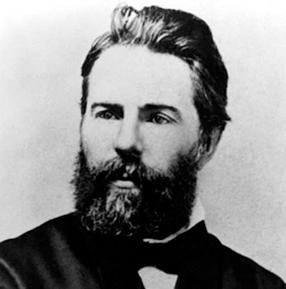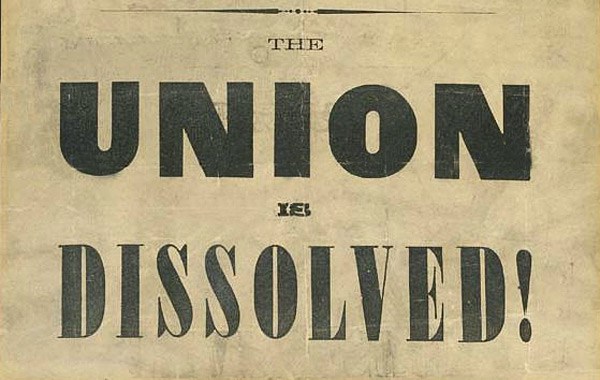A Poet’s Perspective: Herman Melville and the Civil War
It was November of 1860, and America had a new president. He was highly popular among the northern states, but he was widely disliked in the South. At the same time you have Herman Melville, famous for his 1851 novel Moby-Dick, just returned to New York

City after a cruise in the Pacific. It was around this point in time when Melville began writing about the palpable animosity growing between the northern and southern regions of his beloved country.
His poem “Misgivings,” while simple in nature, is perhaps one of the most meaningful pieces of literature to emerge during the time period directly following Lincoln’s election. Here are the opening lines:
When ocean-clouds over inland hills
Sweep storming in late autumn brown,
And horror the sodden valley fills,
And the spire falls crashing in the town,
I muse upon my country’s ills—
The tempest bursting from the waste of Time
On the world’s fairest hope linked with man’s foulest Crime.
By the time Melville returned to New York, South Carolina had already announced its

intentions to succeed from the Union. Melville wrote “Misgivings” during the lull between Lincoln’s election and the first shots fired at Fort Sumter, a period of fear and apprehension that would forever change the course of American history.
Those feelings are expressed in his poem “The Conflict of Convictions,” in which Melville uses a storm to represent the animosity felt on all sides: “I know a wind in purpose strong – it spins against the way it drives.”
Melville was living in uncertain times. The nation that had been established in 1776 with the Declaration of Independence, and validated in 1783 with the conclusion of the Revolutionary War, was tearing itself apart. As the second and final verse of “Misgivings” reads:
Nature’s dark side is heeded now—
(Ah! Optimist -cheer disheartened flown)—-
A child may read the moody brow
Of yon black mountain lone.
With shouts the torrent down the gorges go,
And storms are formed behind the storms we feel:
The hemlock shakes in the rafter, the oak in the driving keel.
In the final line, Melville suggests that once sturdy structures like “rafters” and “keels” are no longer sturdy and safe. This is a reflection on the fracturing of the United States – a country that was believed to be sturdy and safe.
Melville was one of many Americans who struggled to comprehend the changes that occurred just before the start of the Civil War. Stay tuned over the next few weeks to learn more about Melville’s interpretations of America during the mid-1800s.
I find the first verse very poignant; never encountered it before-thank you.
Thanks Caroline. I look forward to more pieces on Melville and his poetic responses to various Civil War events. I was not aware of his poems about the war until this summer; I love the way he responds to events: as they happened, not reflecting on them years later.. I hope you’ll offer some commentary on “Malvern Hill.”
I enjoyed this analysis very much and will be interested in reading more. I do find a most unfortunate misspelling to be disturbing enough to cast a pall on the article, however, and hope you will act to correct it. It appears both in the body of the article and in the cutline under a picture: the South seceded from the Union; it did not “succeed.” Thank you.